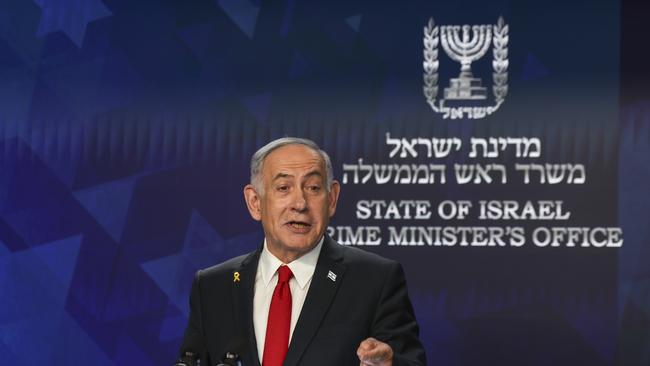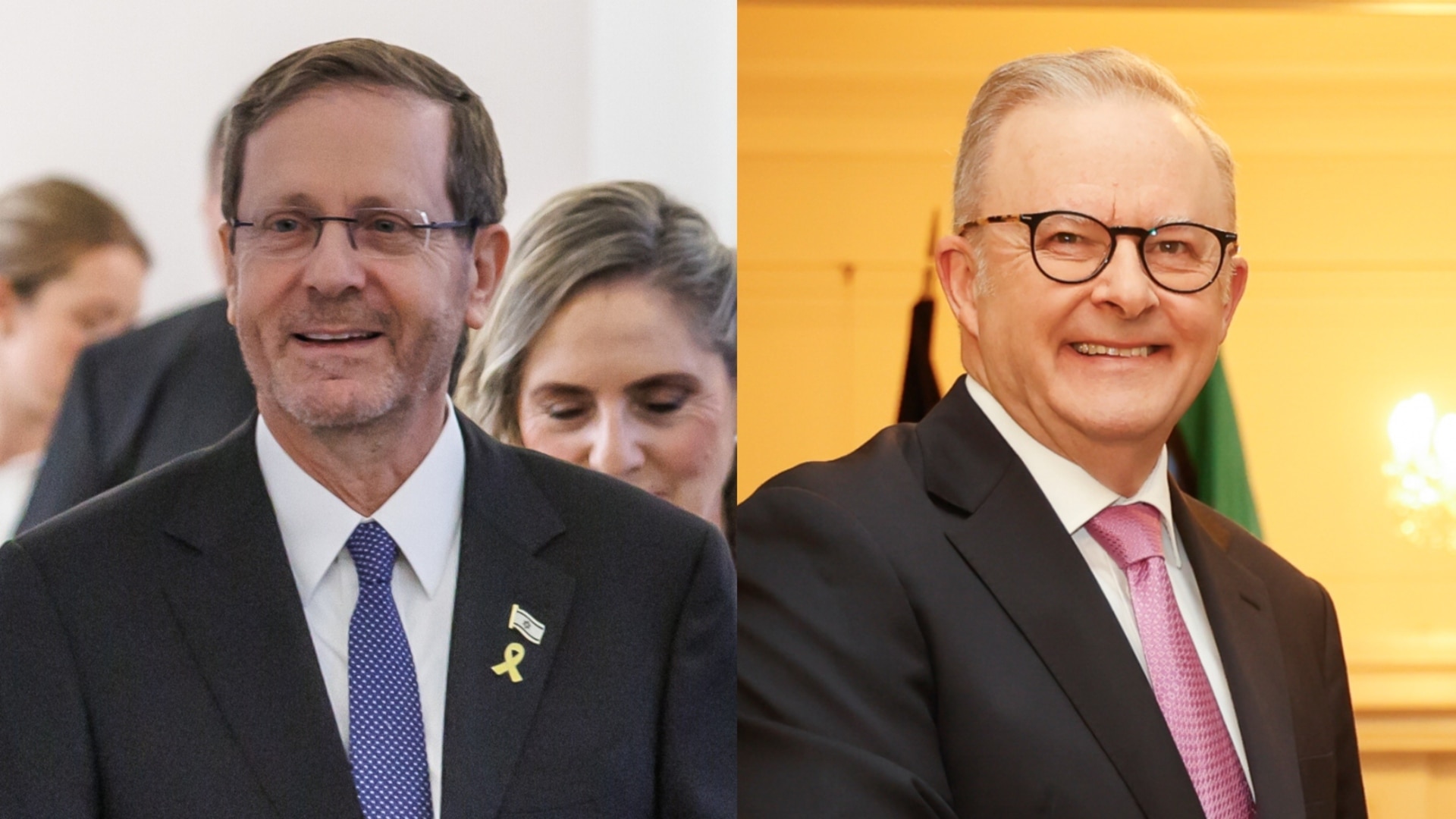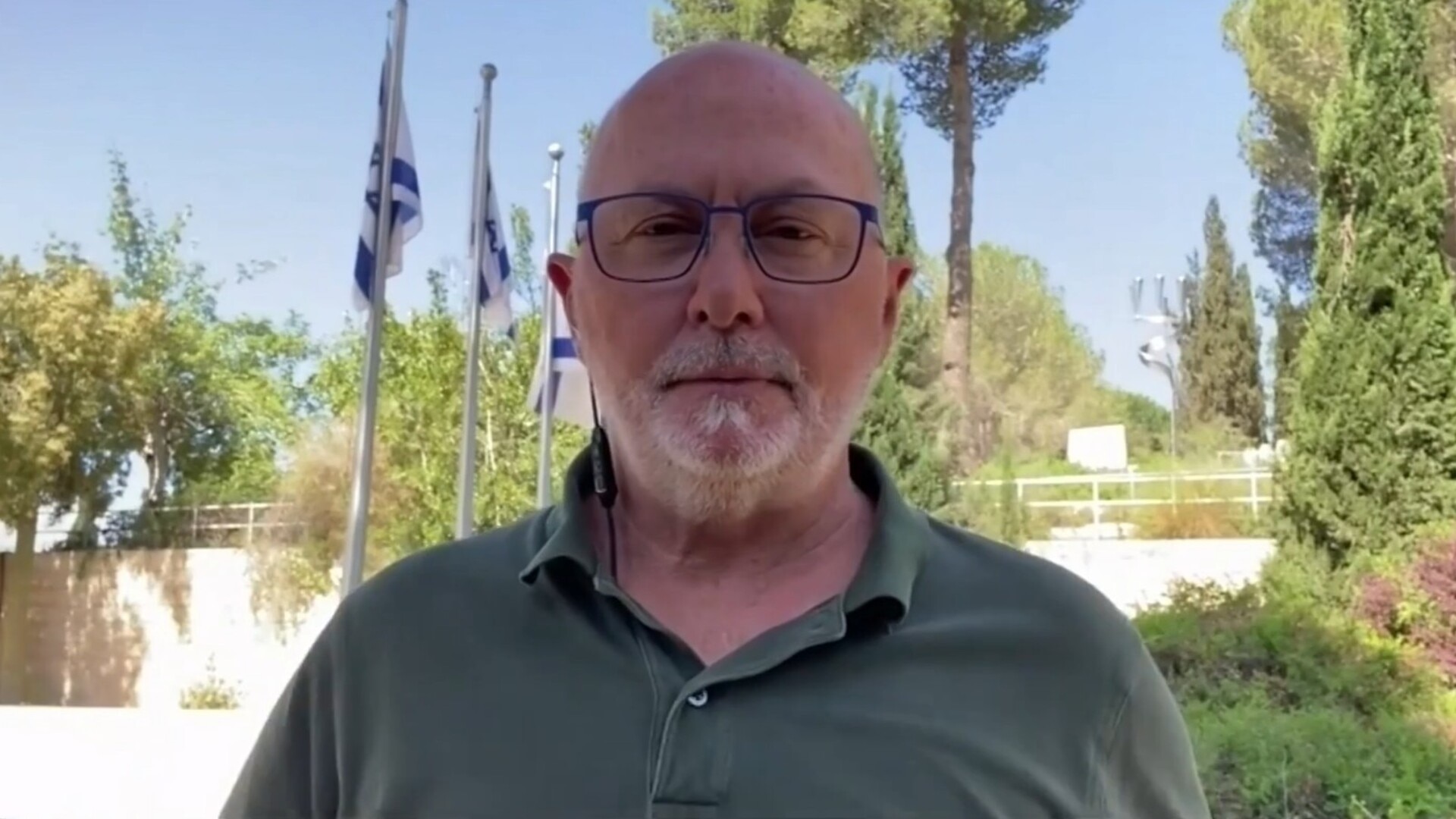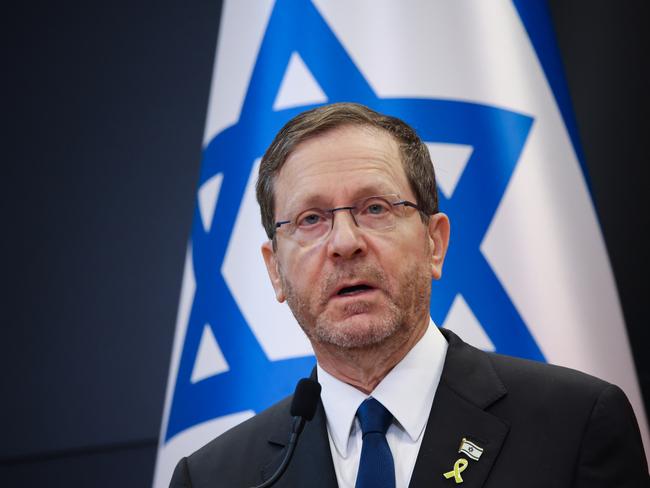On the ground in Israel, the sense of betrayal is palpable
Rather than amplifying wild claims, the PM should be offering aid expertise and resources.

As you walk through the ruins of family homes turned into slaughterhouses and see eucalypt plantations turned into killing fields, the brutal sense of waste and unconstrained hatred tightens your diaphragm. Even 19 months on from October 7, the horror is palpable.
When I was last in Israel almost 20 years ago there was a prevailing sense of hope and optimism because the political establishment believed the unilateral Israeli withdrawal from Gaza had created a platform for peace. Former prime minister, security hardliner and then opposition leader Benjamin Netanyahu had resigned from cabinet in 2005 over the withdrawal, warning it would turn the “Gaza Strip into a base for Islamic terrorism which will threaten the state”, but he was widely viewed as a spent political force.
The mood struck me as rather dewy-eyed at the time because by then Hamas and other Islamist groups were already firing rockets indiscriminately into Israel, even though it no longer was the occupying force. I was working for foreign minister Alexander Downer at the time and thought that at the very least, if Gaza was anything other than a runaway success, Netanyahu might not be done with just yet.
Almost 20 years on, Netanyahu’s political resurgence is old news – he has been Prime Minister over two stints for more than half of the intervening years. But the utter failure of the Gaza withdrawal experiment is still unfolding, with historic ramifications for Israel, the Middle East and Western civilisation.

That the horrific Hamas invasion and terrorist atrocities of October 7, 2023, occurred under Netanyahu, the man who had warned of this outcome all those years ago, is one of the many paradoxes in this ongoing tragedy. Bibi, as he is widely known, is now deeply unpopular in Israel where the public is united in its resolve to have the hostages returned and divided over the best way to proceed.
The extent to which October 7 undermined the confidence of Israelis in their government and security structures is not well understood outside its borders. Here is a country that has been under constant attack since its inception, and prides itself on the crucial twin defences of intelligence vigilance and military capabilities, yet thousands of Hamas terrorists and Gazan civilians were able to breach what was supposed to be a heavily guarded border, to slaughter, torture, rape and kidnap more than 1500 people in an orgy of violence that lasted a full day.
The torment continues more than 19 months on, with hostages held for 602 days and the resultant war still raging. The Israeli people are discombobulated by the failure; on October 7, victims hiding from terrorists took to ringing television stations sharing their distress live to air about why the Israel Defence Forces had not arrived to help them. Yet the goals of reclaiming all hostages, alive and dead, and eliminating Hamas so there is no longer such a threat hanging over the nation work against each other.
This is the diabolic dilemma deliberately created by Hamas. Every time Israel is criticised for its actions in Gaza, Hamas scores a propaganda win. The deaths of Palestinian civilians are central to the Hamas strategy. That is why Hamas shelters underground in its extensive tunnel network, leaving Gazan civilians above ground and exposed.

Global pressure intensifies on Israel on spurious grounds with wild claims about 14,000 babies being on the brink of death and aid being withheld to starve Palestinians. Israel is expected to defeat Hamas while it feeds the people Hamas uses as cannon fodder and sacrificial lambs.
Hamas hoards food aid and sells it to its own people to fund its terror, yet Israel is condemned for failing to meet the Hamas timetable. It is a grotesque standard that is applied to no other country, let alone one under unprovoked attack on at least four fronts and whose compatriots are still being held as bargaining chips in blatant breach of the Geneva conventions.
This week I met Israeli families whose children have been called up by the IDF to fight in Gaza, young people who survived the Nova music festival atrocity, a Muslim Bedouin man who saved Jews on that day and others who lost loved ones at Kibbutz Be’eri where more than 100 people were slaughtered. (Hamas still holds the bodies of six hostages taken from their community.) All the while we heard the dull thunder of explosions a few kilometres away in Gaza, where war goes on.
Israelis are weary but determined. They did not want war but it came to them. They want it to end but have differing views about how – give Hamas whatever it wants in exchange for the hostages or persist until Hamas is eliminated?
Israelis feel alone. The world is not in their corner – under sustained attack from the north, south and east, from state and non-state actors, they are portrayed as aggressors for daring to defend themselves.
That the full force of global diplomacy and media pressure is not directed at Hamas is an affront to moral norms and strategic imperatives – on this, most Israelis seem to agree, regardless of whether they see Bibi as sinister or saviour.
While it is true that most of the Western world has let down Israel or turned against it, there is a particular sense of betrayal when it comes to Australia. From the heroics of the Light Horse in World War I and the leadership of Doc Evatt at the UN in 1948 to the personal and political links in the decades since, Australia has been seen as a strong and reliable ally – no longer.
Israeli officials use terms such as “backstabbed” and “betrayed” when referring to criticism from Anthony Albanese and Foreign Minister Penny Wong that is often based on wild claims and outright lies. President Isaac Herzog used our delegation’s visit as a conduit to issue a public invitation for the Prime Minister to visit – this was not issued as a diplomatic nicety but as a desperate plea for the Australian government to engage on the issues and potential solutions rather than keep taking cheap shots from the side.

Albanese amplifies implausible claims about Israel deliberately starving Palestinians in Gaza when the real-world dilemma is to ensure aid can be delivered directly and free of charge, bypassing Hamas’s profiteering. A serious prime minister would have offered international aid expertise and resources to help find solutions but Albanese just lashed out, leaving Israel and the US to get on with the task of feeding Gazans.
After my 2006 visit I wrote a piece for Adelaide’s The Advertiser arguing that in the fight against Islamist extremism Israelis were at the epicentre in a similar way to how Berliners were the bellwethers in the Cold War. Israel’s struggle would be ours: “The battle is not between civilisations but for civilisation.”
To see how this is playing out we only need to take Hamas at its word. It is doing what it has always pledged to do, fulfilling an Islamist plan that will not countenance a two-state solution.
If this conflict were about Palestinian statehood it would have been resolved three decades ago. Hamas, Islamic Jihad, the Muslim Brotherhood, Islamic State and others want Israel wiped off the map and modernity wound back around the world.
They have terrorised Jews, traumatised their own people and scandalised Israel. It has been a success – inspiring Islamist extremists and anti-Semites worldwide, creating social and political division abroad and weakening support for Israel so dramatically that even Australia has stepped away.
These are worrying times. Israel’s fight remains our battle too. If pluralism and democracy can be eliminated in the Holy Land, they will be under threat globally. And if we cannot unite against a genocidal death cult, civilisation has lost its purpose.
Chris Kenny is in Israel as part of an Australia/Israel & Jewish Affairs Council study tour.





